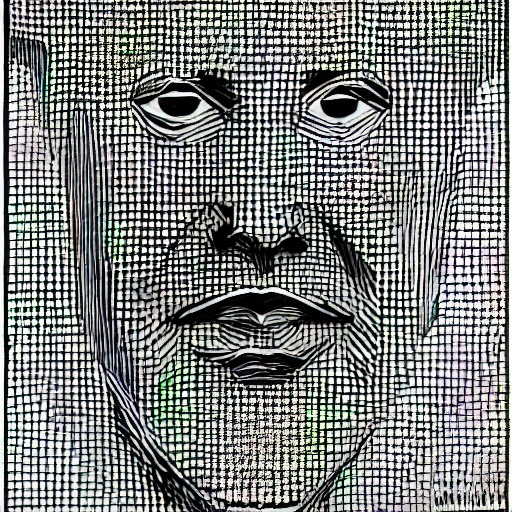But that’s how c is pronounced in castillian, no? What’s pretentious about it?
Pronouncing things as they would be in the language they’re actually in is sometimes a faux pas in American culture, I’ve learned
Let’s be fair: doing things the correct way, or just being slightly educated, is often a faux pas in this wasteland pretending to be a civilization.
The cultural backlash comes not from ‘pronouncing things correctly makes you sound educated’ but because people that do this are adopting an accent for one singular word, and that is often perceived as them attempting to imply some connection to that group/culture that they do not have.
Americans, white Americans especially, have essentially no cultural heritage to draw on. It’s why we latch onto things like a grandparent being from Ireland and thence go around calling ourselves Irish-American, or the confederate stans. People with a rich cultural history are generally viewed as extremely interesting, too, so when another american adopts characteristics from a culture they have no real connection with, it’s perceived as a deeply tacky attempt to gain social clout. Its akin to being presented with a lesser form of weaboo.
(to be fair, this does happen with the perception of educated people too. “Use real words” and all that, so you’re not really wrong just a bit wide of the mark on the particulars)
What do you mean, “white Americans have no cultural heritage”? Your culture runs the planet and has been a going concern for several centuries across hundreds of millions of people. We are in twenty twenty five, good sir. AD. Place got colonized in the sixteenth century. Half of Europe was in a completely different country back then, even discounting all the American history that goes before that.
And yeah, it’s weird that you latch on to foreign ancestry as a substitute. I’d joke about it, but I’m here getting all pissy about the US equivalent, so it’d be hypocritical, I suppose.
Not OP, but maybe it’s better phrased as “white Americans have a limited shared cultural heritage.”
Waves of immigration make it hard to tell what of that 5 centuries is actually shared. It’s also viewed as tacky to try and lay claim to the bit before your ancestors arrived.
If your ancestors were Irish and Italian immigrants from around 1850, going off about the Mayflower can be viewed as similar putting on airs
It’s our national Mythology, we’re a land of migrants and refugees. People have been coming to this land for 500 years, yeah that’s a long time compared to our perspective, but there are traditions and cultures in Europe that predate even knowing about the existence of other land in another hemisphere by an additional 1000 years.
And the culture you describe as dominant over the world while yes is predominantly white, is just unchecked capitalism and neoliberalism and a product of whoever controls the largest military and acts as the economic measuring stick to the rest of the world and that if any other nation were to unseat the US as the dominant economic and militant force, then their oligarch’s culture would dominate the planet.
Yeah, that’s your culture. I mean, time to own it.
For one thing, the rest of us out here don’t make that much of a distinction between different US subcultures. Trump is American culture, Oprah is American culture. They’re all pretty much the same thing.
For another, have some accountability. You guys did this, and yet you all insist it was not you you and you all feel so much more connected to wherever else. No. Stop it. Own it or change it.
Also, as a side point, man, do Americans love to exoticize how old everywhere else is. Yeah, sure, there are a bunch of medieval castles around and a few cultural remnants in traditions, but by and large most European folklore is rooted in some 18th/19th century crap, just like in the US. Europeans aren’t out there having Saturnalia parties.
Ahh yes I completely forgot that the monarchies of European nations only existed for the last 300 years and are in no way historically backed by a religion that’s existed for almost 2000 years which was has a holy book very significanly based on another religion dating back 5000 years. And I totally forgot that Christmas was a totally unique winter holiday that definitely didn’t borrow any traditions from Yule and the Norse or Saturnalia and the Romans which as we all know is not where Vatican City is located nor did the Roman Empire make Catholicism the official state religion in the 300s AD. And wow I totally forgot the english language was completely perfectly formed as it is today less than 300 years ago and isn’t the result of milennia of linguistic adaption of half a dozen different languages.
And I completely forgot to worship my culturally mandated Trump and Oprah statue this year and instead celebrated the Feast of the Seven Fishes and served a big pasta dinner on Christmas Eve and Day that has historically nothing to do Italy or the Italian migration to the United States. Ahh how could I be so careless and thoughtless and wow my memory is so bad.

Americans, white Americans especially, have essentially no cultural heritage to draw on
I thought they drew from the varied backgrounds of the people that came over there? That’s a shitload of heritage
Let’s not put them on the pedal stool
I mean, I get it to an extent. I’m much more in favor of linguistic descriptivism rather than prescriptivism, so I acknowledge that terms and pronunciations can develop over time and are not wrong.
If someone pronounces “Beijing” in English with a softened J/G sound (like “beige”) and someone else corrects them with “Oh do you mean bei-JING”, truthfully neither are wrong. The correct pronunciation is whatever people understand and accept.
On the other hand, suggesting that there is a single correct/more authentic pronunciation (particularly in cases where it may not even conform to standard English phonemes) veers into prescriptivism and has problematic connotations.
Hm, but reacting negatively to someone pronouncing it, for lack of a better term, the original way IS presciptivism. This isn’t about someone who pronounces a Spanish word the Spanish way criticizing someone who pronounces it the English way, but the other way around.
I think it depends on intent and what one’s native language is. Basically, why would someone opt to pronounce a word a certain way if they know there’s differing standards.
No one can help accents, so if for example I was natively Spanish speaking and, while speaking English, I pronounced some Spanish-derived loanwords with the occasional rolled R, no one should be faulted for that.
But if I grew up speaking English natively, learned Spanish after the fact, and then I opt to use the Spanish pronunciation of Spanish-derived terms while speaking English, that comes across as pretentious. I used to pronounce these words one way, but then I gained knowledge, and now I self-correct because I (consciously or subconsciously) want to signal to others that I know more about a language than they do. That act of self-correcting would be an implicit declaration that there is a more correct way to pronounce these words that people who know the difference should use, and pushes back on the idea that the pronunciation of a loanword in the destination language can be equally valid.
But if you pronounce faux pas wrong, it’s also faux pas
To be honest, when I’m speaking German, I pronounce it as French as I can (foh-pah), but when I’m speaking English, I pronounce it like the English speakers do (foe-pah).
“Foh” and “foe” both read as the same pronunciation to me. What’s the difference?
I’m curious, what is it?
Fox-Pass. Yes, people here really say it like that.
I blame the French for that, if you want a word to be pronounced a certain way don’t spell it totally different.
I remember talking to these girls on discord, and they kept talking about their new fox ears, and then when they showed me, they were bunny ears on a headband. That’s when I realized they were saying faux ears.
[ faux pas ]
Pronounce both x(ks) and s. That’s how I believed it to be pronounced until 30s lmao
I assume most people without actual knowledge of the pronunciation (ie. has only seen it on text) would pronounce it
Fowks pass!
Only if you are not a native speaker of that language, or always? Am I supposed to imitate how Americans botch the names of German car manufacturers like Porsche or Volkswagen if I ever go on vacation there?
In my experience, you’re exempt if it’s from your native language. Unless they can’t tell your native language from your accent (people can tell I’m not a native speaker of English, but they can’t tell what my native language is). British are similar.
Yeah, it’s weird. Sometimes people think it’s pretentious and sometimes people think you’re an idiot, whether you do it correctly or not. Like all rules with the English language, it’s a case-by-case issue. If anyone tells you a rule to remember it, it’s likely wrong more often than it’s correct.
And sometimes not doing it is. Versailles? Frenchify it unless you’re talking abouta small town in Kentucky. Paris? Pronounce it the same whether it’s the one in France or in Texas. Milan? Honestly no clue and I live here (America, not italy)
I’ve been mocked and had some people outright pretend they don’t understand what I’m saying when I pronounce guanábana correctly.
How do the people around you pronounce it? I don’t think I’d understand it if it were pronounced differently
This video says it both ways I’ve heard. The white people around me pronounce it like the one with the union jack (heavy emphasis on the B), the Spanish speakers pronounce it more like the version with the American flag background (ironic). Most of the other pronunciation videos I could find seem to be made by AI voices and mangle the pronunciation in a myriad of ways. This other video has an actual person speaking well (I can’t speak to the rest of the content of the video).
probably that he’s not from there. absent other information, his lisp would then indicate that he is imitating the accent in order to sound more cultured. like someone from the us midwest saying “have you been to mehico?”
Barcelona kinda has an extra layer of this too, because Catalan does pronounce “Barcelona” with an S sound rather than an unvoiced TH
Someone should make a silly comic about it
Different vowels, though. Like I said below, I wonder what the “pretentious” read would be with an accurate Catalan pronuntiation. Gonna guess it’d pass better, because all anglophones tend to know about that whole situation is “Castillian Spanish lisp hur hur”.
Maybe that’s why this strip and the whole “he said it with a lisp to sound cultured” joke rub me the wrong way. It always seems like latching on to the pretentiousness to get away with an ignorant or xenophobic joke.
The Wikipedia entry has a pronunciation guide:
English: [bɑːrsəˈloʊnə]
Catalan: [bəɾsəˈlonə]
The first a is a schwa and the o isn’t rounded. Honestly, it looks quite similar to English, to the point where there might be some English dialect that sounds exactly like that.
Having heard native speakers say it many times, this post is mostly showing the limitations of IPA because… yeah, no, not really.
And then there’s the layer on the other side, because the majority of Spanish speakers worldwide pronounce it with an “S” sound.
So, the majority of Spanish speakers in the Americas (which by far outnumber the number of Spanish speakers in Spain) use an “S” sound. The dominant form of Spanish in Spain uses the “th”, but the local dialect goes back to an “S” sound.
So, what rule are you going to go by? How the locals say it? The most locally of locals will use an “S” sound. How the majority of Spanish speakers say it? That’s again an “S” sound. How the majority of the people in the country who legal sovereignty over that region say it? Then I guess you’d go with the “TH” sound.
The most logical rule, to me, is to pronounce it however the person you’re speaking to will most easily understand it. In English to another English speaker, that almost certainly isn’t going to be the “th” pronunciation.
That’s fine, I intend to aggressively say “Los An-heles” and “Ari-tho-nah” from now on, see how the anglophones deal with using a normal accent to say their names.
I mean, I get it, it sounds weird when people say “Los Anyeles” or “London” when speaking Spanish, too. But… you know, if the spelling is the same I don’t see the problem using the way it’s actually meant to be said.
I’ve gotten enough weird looks for ordering a “BuRRi-toh” in anglo speaking countries to be annoyed by this. And don’t get me started with how Americans have chosen to pronounce “Los Gatos”. If you’re going to steal our word you at least could give us the deference of not mocking us for saying it correctly.
Now, if the anglophone in question is out there calling it “Barna” you know they’re a poser.
i feel like the wider point got missed there.
saying “barcelona” with a faked spanish accent is the same as saying “berlin” with a faked german one. it’s weird, and it makes you took pretentious. bar th elona and ibi th a are just common versions because a lot of people know about them.
now, some people can’t help it. they might be german, for example. that’s different, and the comic is saying we shouldn’t judge for that, and we shouldn’t assume someone is trying to sound clever just because they pronounce a word differently.
Yeah, no, I get the joke.
I’m just annoyed by the joke.
Slightly, anyway. It’s less annoying than hearing Colbert do it (he really likes this one, and generally slightly xenophobic country stereotype jokes, for some reason), but it always rubs me the wrong way a little bit, for the reasons I mentioned elsewhere.
I mean, I’m not mad or anything, I still get to have a sense of humor. For as much as “guy speaks funny” is one of those, anyway.
yeh. “accent humor” is almost always just thinly veiled just racism or ableism. here at least it’s got a bit of a spin on it. not a lot, but some.
I really disagree honestly. I think at least attempting yo match local pronunciation, at least when there’s no translated name available for the language you’re speaking, is just respectful to the people there. I have no issues with someone saying berlin the english way, but I’ll always appreciate the attempt to pronounce it german. Ane this goes moreso for places where the typical english pronunciation is just completely off (such as english speakers silencing trailing 'e’s and such).
if you are attempting to communicate with locals, sure. if not, you just make yourself harder to understand.
Bey-a lean
Los Anyeles
That makes me feel upset.
London
This drove the point home for me. If a Spanish-speaker says “London”, it just sounds completely wrong. For those wondering, it’s pronounced “Londres” in Spanish.
When my dad is trying to joke about it he’ll call it “Londón”, and I’m weirdly fine with that.
Fair but unkind. People talk weird most of the time. 😺
yes, that is indeed the joke of the comic.
It’s the opposite (as far as I could find). Pronouncing “c” similar to “th” is only done in Spanish in Spain. In Catalan (as well as Latin/South American Spanish) all pronounce it like “s”.Nevermind, I just can’t read. You wrote Castilian, not Catalan.
Castilian Spanish is the dominant dialect of Spanish in Spain.
Edit: A helpful map:

And that’s the point, I believe. Catalan is not a dialect of Spanish.
Castilian and Catalan are two different things, I think the previous poster may have just misinterpreted the top level post which was not wrong about C being pronounced as the English TH.
deleted by creator
There is no mention of catalan in my post because it wasn’t about catalan. 🙃
Well that’s awkward. My brain seems to have “autocorrected” Castilian to Catalan. I literally didn’t notice until I reread it just now. My bad.
What’s pretentious about it is that you’re talking in English, so you should use the English place name. The purpose of communication is to be understood by the other person. If you use a non-standard pronunciation, even if it’s the name as the locals there pronounce it.
So, to communicate effectively to another English speaker in English you shouldn’t be saying “Munchen” you should be saying Munich. You should be saying Prague, not Praha. Vienna, not Wien.
Choosing to say the name of a place “like the natives do” might be seen as pretentious because instead of trying to communicate effectively, you’re attempting to seem smart or cultured.
For me is a matter of respect, I try to pronounce place names just as I try to pronounce names. If I say them wrong I feel like I’m disrespecting the locals.
If that makes me pretentious I’ll be a petty bitch and mispronounce the names of the ones calling me so. Bastards.
So, you have more respect for the people who live in a city, who are not part of the conversation, than you do for your conversational partner? That’s weird, dude.
Thank you for detailed responce. For some people it might be just a habit, I’m sure most people aren’t against using equivalent names if they exist. Just never occured to me that it would be pretentious, for example until you mentioned that Praha is Prague in English it didn’t click with me.
Funny video about pronouncing individual words in an accent: https://www.youtube.com/watch?v=fKGoVefhtMQ
The english Th sounds different from the spanish C. Source: spaniard.
It’s similar though.
I know its sounds like im an asshole but i lived 4 months there and picked itnup lol. So now i alsways say it like that even tho my spanish is pretty bad. But i like to pick up the correct, native pronounciacion of place names anyways to show a bit of respect to the people living there and i dont judge you if you dont do it.
I’m bilingual and that’s dumb.
People living in a place don’t care how you say the name of the place where they live when you’re talking to someone else in your own language. They don’t feel a sudden burst of respect from someone elsewhere in the world.
More importantly, the native names of most places use phonemes that simply don’t exist in English. Turkey wants you to say “Türkiye” but not only does English not have the “ü” character, that phoneme simply doesn’t exist in English. If you’re trying to communicate with someone in English, you shouldn’t use phonemes that don’t exist in English.
Fundamentally, the purpose of saying a place’s name is to communicate with someone, it’s not to show respect to the people who live in the place being named. If someone is going to find it even slightly difficult to understand you because you’re choosing to pronounce the name of a place in a way that’s unnatural to English speakers, then you’re doing a bad job of communicating.
Im bilingual and speak 4 languages and i like it when people pronounce names correctly. Especially in hungarian which a lot of people pronounce incorrectly, it feels nice. Then again i could be alone but other peoples comment suggest otherwise. I just dont know why you reacted so offensively to my comment. Btw a language not having the correct sounds doesnt mean you dont hear/know them. Im really bad with the scratchy sounds in french, danish, arabic, etc but i still hear them so i recognise what is being said.
i like it when people pronounce names correctly
How do you define “correctly”? Is “Munich” a correct way to pronounce that city in Germany, or is only Munchen acceptable? Or should it be “Minga” because that’s how it’s said in Bavarian?
Trilingual here, if it’s clear that someone is trying to say it correctly (as would be said by anyone of the native language) even if they mispronounce it they get a pass.
If you come to my city and call it Saint Sebastien you are going to get very weird looks. If you call it San Sebastian or even better, Donostia, even mispronounced most local will smile because you are fucking trying.
Yes there are some phonemes that don’t exist in other languages but it’s clear when outsiders say them wrong while trying vs wrong and they don’t bother to make a similar sound. It’s about respect.
I would say Munchen since its how my German friends told me that should be said.
if it’s clear that someone is trying to say it correctly (as would be said by anyone of the native language) even if they mispronounce it they get a pass
It’s not about “getting a pass”, it’s about what’s the best way to say it for a given audience. In most cases, that’s how the language you’re currently speaking says the thing. If you’re a Brit, in London, talking to another Brit about Zaragoza, you shouldn’t pronounce it the way Castilian Spanish speakers would say it because the person you’re talking to is not likely to recognize the name when spoken like that.
You could say the same thing in english in english because of the many dialects. I usually say place names in the local dialect except if its a language i speak and then you see how language is flexible becuase people who speak the same language as me say stuff differently.
I usually say place names in the local dialect
That seems like the best way to communicate.
except if its a language i speak
So, if you speak a language, you don’t care what the people you’re speaking to understand?
Oh, this is German, I speak German, I’ll tell Dave it happened in Agram
“So, I the guy went to Agram”
“Wait, what’s Agram”
“Agram, that’s the German name for Zagreb, Croatia. I speak German!”
No i mean i say swedish place names with my dialect not the one where the place is. If you speak a language well enough its hard to adjust you dialect. Same with english. I have a very strange mix of american and irish english so if i say the name of a south african place it wont come out the same way a south african would. But you should know this because you also speak english and this happens when a lot of people speak the same language. Hungarians in hungary say almost everything the same but when you go to romania or slovakia for example, the pronounciation changes but my accent stays the same. Of course there is code switching but thats usually only 2 dialects.
Damn, the other commenter seems hellbent on making you sound like a snob, despite every one of your comments being chill and relatable.
Look ma, a cunt
Here in Switzerland we have four languages and we simply say words like they sound in the language they are from, even if most of us only speak one of the languages natively and one as a second language from school. There is no reason to make up separate pronunciations. Buillon is buillon and tiramisu is tiramisu even if I’m speaking Swiss German.
Switzerland is a tiny country, so it’s no surprise that certain words are standardized.
My experience has been the exact opposite. When I mispronounce words I’ve been giggled at and/or corrected. When I pronounce it right, people either don’t notice or act pleasantly surprised, I’ve even gotten some head nods that I assumed was acknowledgement of my trying
When I mispronounce words I’ve been giggled at and/or corrected
By whom?
When I pronounce it right
What do you mean by “right”? “Barcelona” with an “s” sound is right.
Mostly Spanish speakers, not from Spain though. I wasn’t specifically talking about Barcelona, that’s just what the meme is about.
But they are speaking the local language, so they’re learning to say it the correct way. Why would they insist on saying it wrong when they are learning to say everything else correctly?
Who’s speaking which local language?
What’s the name of someone speaking a foreign language?
What is the colour of wind?
Language is indeed for communication, which is why both ways of saying it work…
Except one way is better, and that’s the way that the person you’re speaking to understands best.
If I say Barcelona with a lisp, or without, 99.9999% of people that know what Barcelona is will understand me, you’re being unnecessarily pedantic. Anyone who seeks to control language should talk to a linguist. Language isn’t prescriptivist as much as non linguists like to think so. It is fluid and ever changing. People will choose how they want to speak and it will either work or it won’t. If people understand what someone is saying, nothing else matters as much as many like to think.
Yes, Barcelona is a place that people have heard enough of the two versions to know the “strange” version that isn’t natural to their language. But, what about Zaragoza? I doubt most English speakers would understand what you meant if you dropped the Castillian version of that into a sentence when speaking English.
Language isn’t prescriptivist
Of course not, that’s why the names of places in English don’t sound like the names used locally. If it were prescriptivist there would be no Munich, only Munchen. No Prague only Praha, no Geneva, only Genève. Only someone who doesn’t understand how languages work would think that it’s appropriate to say “Barcelona” with a “th” sound when speaking English.
You said “of course not” and then ended with a prescriptivist point of view, you’re lost mate.
Edit: I think you need to read a bit more about the difference between prescriptivism and descriptivism and maybe read something by a linguist, or watch one of their YouTube channels. Just because you’re rejecting one prescriptivist point of view, if you take up another prescriptivist point of view in counter, it’s still prescriptivist. The point is, enforcing language in any direction is a pointless task, language will never do what you want it to do, all you’re doing by trying, is making sure everyone is annoyed with you.
I think you need to do some more research. Nothing I said was prescriptivist.
There is a lot of people that speak english as a second or third language often they just don’t know correct english toponims or idioms, sometimes it’s just happens. English for a lot of people isn’t objective by itself just a means to an end.
Sure, but as a general rule, if you’re trying to decide how to say the name of a place, you should say it as it is said in your language/dialect if you’re speaking your language/dialect, and especially if you’re speaking your language/dialect with another person who speaks the same language/dialect.
Good luck dealing with all the idiots disagreeing with you. I’m not sure whether they think they look smart by using the “correct” pronunciation; but one learns quickly to anglicise words when talking to anglos.
Do you get to the cloud district very often? Oh what am I saying, of course you don’t.
The majority of my time playing skyrim I thought he was referring to somewhere in a different city like Solitude or something. Didnt realize he was talking about a place thats 10 paces away lol
The sense of scale has always been off with these games. Huge battles have 20 people fighting, cities have less people than a small apartment building.
And like… I’m just guessing… 800 square feet? That’s a district? Nazeem is crazy
serious question. is it pretentious to use the “real” name of a place instead of it’s english name? i’m not talking about pronunciation, but when english people decide to come up with a completely different, name for foreign places
like, “i visited milano, torino, and firenze this summer” instead of “milan, turin, and florence”
Well, I don’t think most primarily-English-speaking people would appreciate you mentioning that you visited Baile Átha Cliathe this past summer instead of just saying Dublin.
Yeah kinda because English speakers know it as Milan, Turin and Florence
Does this mean I have to start calling Los Angeles “The City of Angels”?
Well, most of the Spanish speaking world calls Barcelona the same way we call it. With slightly different inflection, but only the castellanos have the “Spanish lisp.” Which derived from some king who had a lisp, if I’m remembering that correctly? So other Spanish speaking people—most of them, in fact, don’t call it “barth-elona.”
I learned Spanish in Spain, so I started speaking in that lispy Spanish. But as I continued to get way more fluent, living in the other parts of the Spanish speaking world, my accent changed.
The Spanish king with a lisp is a folk etymology.
If it were true, then ‘s’ would also be pronounced that way.
I learned Spanish in Honduras. Never heard anyone ever use the Spanish lisp.
Well of course not. It’s a feature of the Castellano accent in Spain.
I am all in to pronounce names & places correctly, aka according to the original language. So, so dumb when a name is “transliterated” to another alphabet and now it doesn’t mean anything to anyone, and nobody can read it correctly.
However, for well established names, might not worth the trouble.
I agree to a point, but try Bangkok.
Edit: For the uninitiated, that is: Krungthepmahanakhon Amonrattanakosin Mahintharayutthaya Mahadilokphop Noppharatratchathaniburirom Udomratchaniwetmahasathan Amonphimanawatansathit Sakkathattiyawitsanukamprasit
lol do they say that colloquially? I don’t think so?
No. They use Krung Thep, which is short for Krung Thep Maha Nakhon.
Bangkok is also the first one that came to mind, bit as other have said the full name is not used locally, either.
Pekwachnamaykoskwaskwaypinwanik Lake in Manitoba, though.
Maybe, but what do the locals call it?
The ancient Spanish basically all had a lisp. Nobody thought about it at the time and it eventually became the status quo and then correct pronunciation. I base this on absolutely nothing and will die on this hill.
There is an urban legend that everyone in Spain started speaking this way because of the super-inbred Habsburg kings had a terrible lisp and everyone wanted to make him sound normal. There’s no evidence of it, but considering this guy was king of Spain…

Consider that the artist probably, at the direction of the subject, made some alterations (aka photoshopped) to the painting in order for the portrait to come out how they wanted to appear. It’s possible that the subject looked even worse.
Oh almost certainly. You don’t make the king look bad.
When Spain invaded Latinamerica, they recorded the language of the natives phonetically but there were a lot of sounds that didn’t have an Spanish equivalent so they just wrote X for all of them and now they’re trying to retroactively fix the spelling of several words so you’re kinda right. For example, Spain insists México is spelled Méjico.
Edit: Apparently, as of recently, Spain no longer insists México is spelled Méjico but still keeps it around as a correct spelling (it’s not, it’s literally only them).
That sounds interesting, do you have a source? I’d like to learn more.
I’ve read that in ancient Spanish the letter X had in some cases the sound that the letter J has in modern Spanish, therefore the spelling of some words changed accordingly: Don Quixote is Don Quijote in modern day Spanish.
It’s not a lisp. Castilian pronunciation uses the same S sound as for the letter S as speakers from Latin America. It’s only Z and soft C that are different.
If I ever go to Istanbul, I’ll be telling people I visited Constantinople.
Byzantium, please!
Fuck that Carigrad or Tsargrad
Byzantium iirc is a different place that is close by.
Byzantium … was an ancient Greek city in classical antiquity that became known as Constantinople in late antiquity and Istanbul today
I think it’s just grown over the years
It’s a bit iffy. Byzantium originally was located a bit further west. After Constantinople was “refounded”, it was located a bit further east. Some historians consider Constantinople to be a new city that usurped Byzantium over the years, others don’t and consider it the same city altogether.
This is complicated by some sources referring to the place as one and the same, whereas others seem to be indicating distinct (albeit close) locations.
Ultimately it doesn’t really matter though. It didn’t take long for Constantinople to grow beyond where Byzantium used to be, so the time period where they could’ve been distinct is really quite small.
Interesting, thanks!
Lygos or gtfo
Well, even old New York was once New Amsterdam, so…
Why’d they change it?
the guy with the captain’s hat thought it looked more like York.
That this thread became a mixture of They Might Be Giants and Mitchell & Webb is hilarious and i’m here for it.
Honestly, idk. I guess people just liked it better that way
I can’t say
Supposedly, the English took it from the Dutch. The English king gave it to his brother who was the Duke of York and renamed it in his honor.
That would be the (standard) Spanish, right? Catalan, the local language, has it with /s/
But it’s very language-dependent. English has established names for many places, so you should probably use those. But some languages just don’t, and if you borrow everything, you might as well borrow properly.
I think it’s interesting that some countries have entirely different names depending on the language. Here is one for example:
- English - Germany
- Spanish - Alemania
- Finnish - Saksa
- Polish - Niemcy
- German - Deutschland
There are many others, but they are more so variations of the same name, so I didn’t include them. The ones I listed are completely different.
I heard that the different names originated from the names of the Germanic tribes that interacted most with the respective peoples and resulting language. For example, what would be English-speakers would interact mostly with Germanic tribes, whereas would be Spanish-speakers would interactact mostly with Alemanni tribes. However, Perplexity says that the English name comes from the Roman name for the area, while the Spanish name comes from the name of the tribe. If only Crunk the Historian could investigate this and find an ultimate answer.
Fortha Bartha
Hah. It does raise the question of what the reaction would be if the guy was going for a Catalan pronuntiation instead.
Una thervetha por favor!
¡Pues hombre, vallase para la porra! ¡Imbecil!
Una torta de patatas
Ith hith name Igor?
Yeth marthter.
That’th great newth!
I can’t type out the pronunciation but have you guys heard American people read Japanese names? My god, it is so weird. Say that to Japanese people and I bet half of the time they don’t recognise what it is. The way a foreign language is being butchered is beyond imagination.
The one that keeps surprising me over and over again is Karyohkey instead of Ka-ra-o-ke.
Not sure about names, I feel like I have heard proper pronunciations of Akira and Tanaka in media, do you have some good examples of ones that are frequently wrong?
Even something like “Tanaka” I often hear pronounced like ‹tə 'na kə› rather than like ‹ta na ka›
‹a ki ɾa› becomes ‹ə 'ki ɹə›
Not sure if the IPA is precisely correct in there but the schwa ə and the stress is what I hear oftentimes.
I have not, but now I am interested. Any idea where I could hear the difference between the correct Japanese way and the butchered American way?
I had a (white American) friend who insisted on pronouncing every Japanese word he got to in a sentence with the proper heavy Japanese accent/pronunciation, and he sounded like a fucking idiot. It’s a strange phenomenon.
Reminds me of one of the best Kids in the Hall sketches.
deleted by creator



















